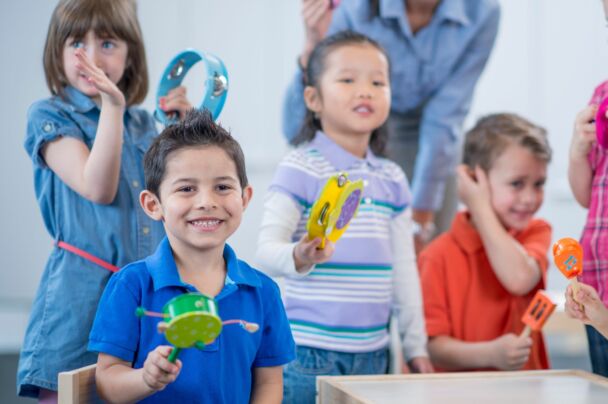Description
Music involves our emotional, physical, cognitive, social, and spiritual aspects, and is an integral and powerful tool for personal and social development. Because of this, music is used for preventive, and therapeutic purposes and to promote well-being in different contexts such as education.
The course aims to explain how to introduce musical activities in the classroom. Participants will practice receptive and active techniques including improvisation, visualization, body percussion, sound therapy, and songwriting, and learn how to replicate these experiences with their pupils and students.
The course will bring great benefits to the participants’ teaching competencies. Including music therapy techniques in the classroom facilitates meaningful learning because music activates cognitive functions like attention, memory, motivation, creativity, and imagination.
Moreover, music may bring people together and be used as a social activity to increase self-expression and social and emotional intelligence (SEL). Finally, implementing music therapy techniques can foster positive relationships and environments, facilitate the regulation of emotions, and promote cooperation and empathy among students.
Although the course does not delve fully into the therapeutic context of music, it exploits concepts and principles from music therapy to create an environment where participants can experience the power of music, and learn how to use it to meet their students’ needs.
By the end of the course, participants will know how to include music in the classroom for developing cognitive and emotional abilities by implementing the principles of music psychology and music therapy.
What is included
Learning outcomes
Participants in the course will learn to:
- Understand how music therapy can promote mental and emotional growth through the use of musical resources in the classroom and education in general;
- Discover music therapy techniques and implement them in the classroom with the purpose of promoting well-being, empathy, and emotional intelligence in students;
- Experiment with music therapy techniques to find the role of music in creating meaningful learning and a positive environment;
- Learn the benefits of music for developing cognitive, emotional, and social learning in education;
- Implement music in classrooms for developing creativity, engagement, and meaningful learning;
- Design activities for their classroom including musical resources and ICT.
Tentative schedule
Day 1 – Course introduction and team building
- Introduction to the course, the school, and the external week activities;
- Icebreaker activities using music for trust and creating team building;
- Identification of needs and goals for each participant and relevant populations.
Fundamentals in Music Therapy
- Fundamentals in Music Therapy: definition, history and core values;
- Music Therapy: Case studies and individual activities (“My music history”)
- Presentations of the participants’ schools.
Day 2 – Music for emotional awareness
- Music and emotional intelligence;
- How music can enhance our emotional awareness and self-regulation?
- Receptive techniques in music therapy;
- Individual and group activities: visualization and sound therapy.
Day 3 – Music for creating group cohesion
- Music and cooperation: social skills and empathy;
- Improvisation techniques in music therapy;
- Individual and group activities: body percussion and improvisation.
Day 4 – Music for meaningful learning
- Neuropsychology of music: cognitive abilities;
- Music, attention, memory, and motivation;
- Songwriting as a music therapy technique;
- Individual and group activities: songwriting.
Day 5 – Music and therapy
- Music psychology and music therapy: uses of music in the classroom for creating well-being;
- The ISO technique;
- Limits of music therapy techniques in the classroom context.
Day 6 – Course closure and cultural activities
- Course evaluation: round-up of acquired competencies, feedback, and discussion;
- Awarding of the course Certificate of Attendance;
- Excursion and other external cultural activities.


